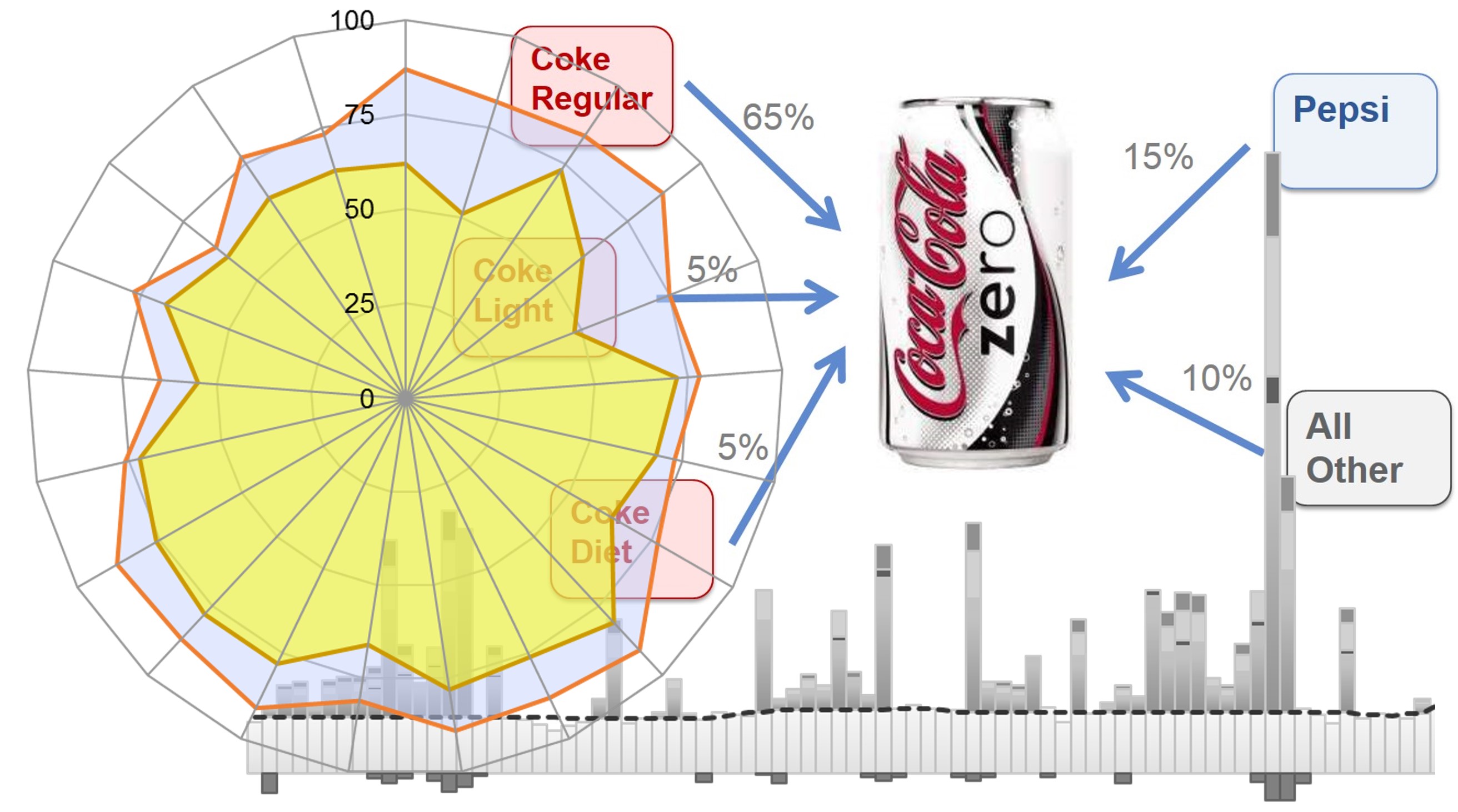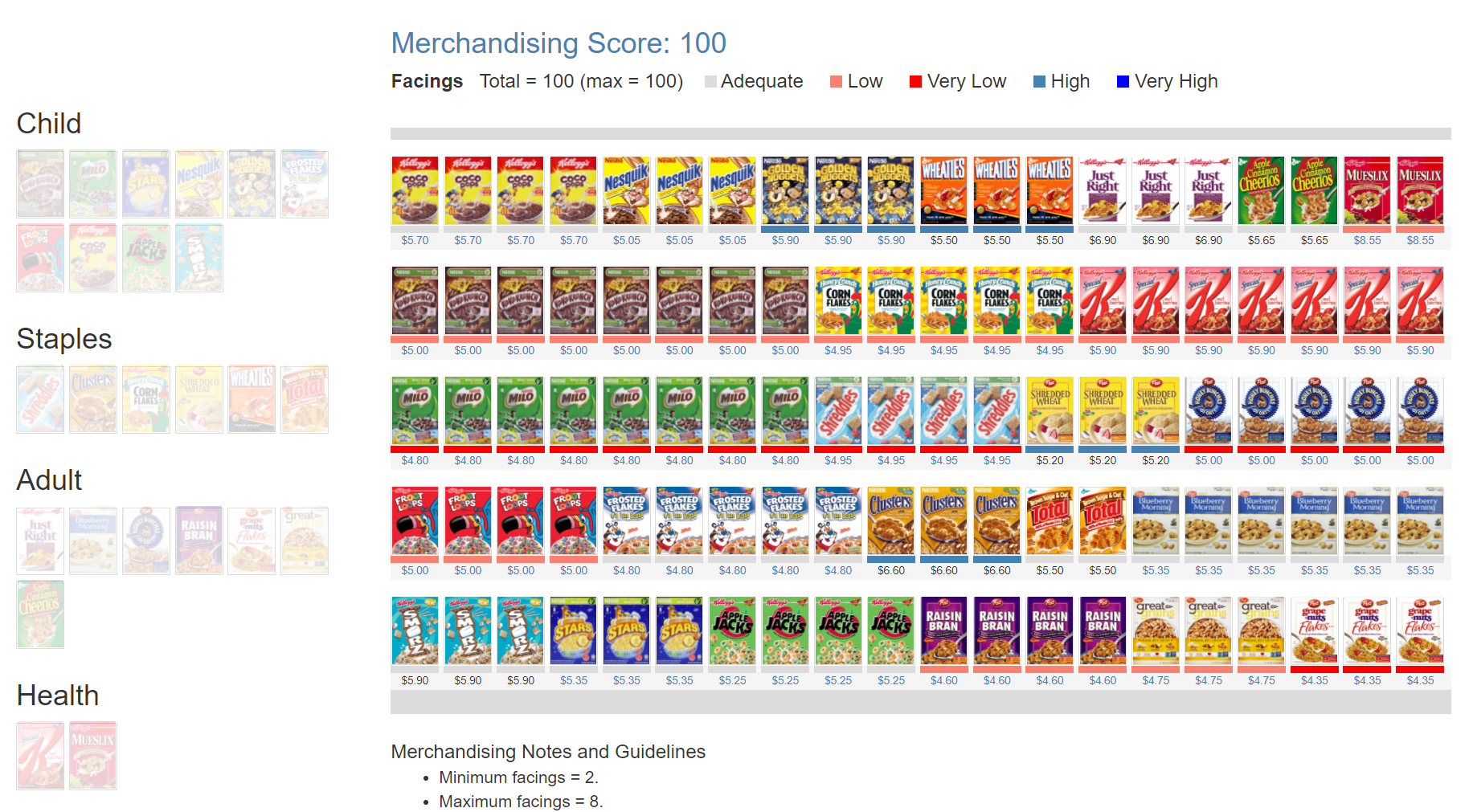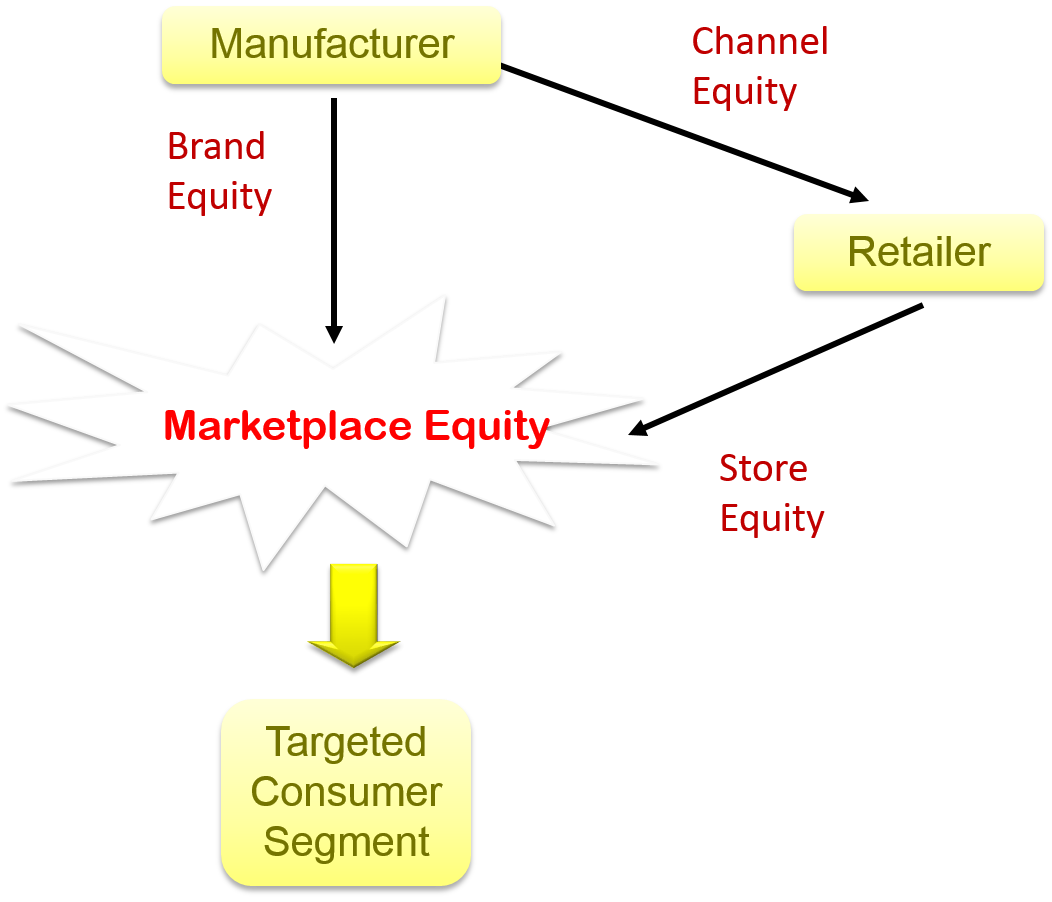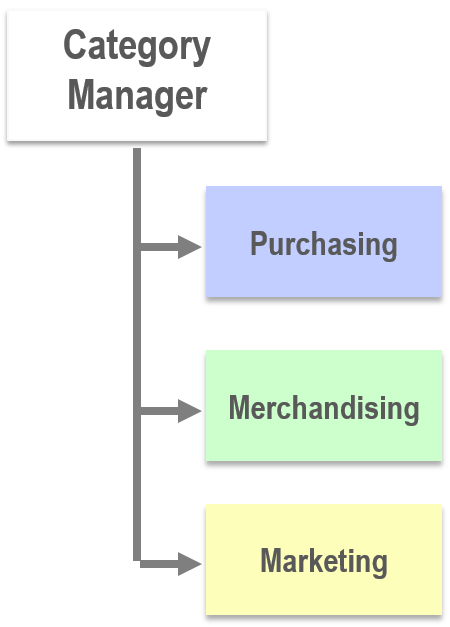-
Category Management
Category Management
Partnership between Retailers and Manufacturers
Category Managers and Trade Marketers
Trade Marketing
Origins of Category Management
Trade Formats
Categories
Category Roles
Category Strategies
Review
Retail Mix
Price
Promotions and In-Store Media
Space Management
Execution
Benefits of Category Management
Developments in Retailing
- Retail Tracking
- Sales and Distribution
- Retail Analytics
- Category Management
- Marketing Education
- How to Choose the Right Marketing Simulator
- Self-Learners: Experiential Learning to Adapt to the New Age of Marketing
- Negotiation Skills Training for Retailers, Marketers, Trade Marketers and Category Managers
- Simulators becoming essential Training Platforms
- What they SHOULD TEACH at Business Schools
- Experiential Learning through Marketing Simulators
-
MarketingMind
Category Management
Category Management
Partnership between Retailers and Manufacturers
Category Managers and Trade Marketers
Trade Marketing
Origins of Category Management
Trade Formats
Categories
Category Roles
Category Strategies
Review
Retail Mix
Price
Promotions and In-Store Media
Space Management
Execution
Benefits of Category Management
Developments in Retailing
- Retail Tracking
- Sales and Distribution
- Retail Analytics
- Category Management
- Marketing Education
- How to Choose the Right Marketing Simulator
- Self-Learners: Experiential Learning to Adapt to the New Age of Marketing
- Negotiation Skills Training for Retailers, Marketers, Trade Marketers and Category Managers
- Simulators becoming essential Training Platforms
- What they SHOULD TEACH at Business Schools
- Experiential Learning through Marketing Simulators
Partnership between Retailers and Manufacturers
“Every great business is built on friendship.” — JC Penny.
Exhibit 32.3 Manufacturers and retailers jointly contribute to marketplace equity. Adapted from Anderson et al., Business Market Management. (2009).
Category management is essentially the management of a collection of brands in stores. It works best as a collaboration between retailers and manufacturers to enhance marketplace equity.
Marketplace equity (Exhibit 32.3) represents the incremental value a consumer derives from acquiring her repertoire of brands at a particular store. It is the outcome of brand equity and store equity and the extent to which they reinforce one other, and it serves the mutual interests of both the retailer and the manufacturer.
Manufacturers realize that increasingly brand choices are made in stores. What is stocked, where, at what price and with what incentives has great influence on the consumers’ buying behaviour and ultimately their choice of brand. They recognize the need to work with retailers to market their brands in the retailers’ stores.
Retailers recognize the need to rely on manufacturers’ resources and knowledge of products and consumers, for the development and execution of category strategies.
The foundation of category management stems from retailers’ and manufacturers’ need to collaborate to pursue their mutual interests. It is the retailer/supplier process of managing categories to achieve superior business results by enhancing marketplace equity.
It has become an industry practice for major retailers to appoint manufacturers as category captains for important categories, and count on their expertise and support to manage categories. While the category captaincy usually goes to one of the larger manufacturers, others participate as category advisors.
Manufacturers eagerly embrace category management as it affords the opportunity to collaborate with retailers to strengthen their categories and enhance the health of their brands. Being appointed as a category captain is also seen as a source of competitive advantage, allowing manufacturers to strengthen their relationships with retailers. Additionally, the close proximity to retail partners allows for quick access to useful trade information and resources. This facilitates faster more efficient decision-making and implementation of trade strategies.
Category Managers and Trade Marketers
Exhibit 32.4 Category manager’s role encompasses marketing and merchandising in addition to purchasing.
Structure follows strategy. As the practise of category management permeated retail organizations, “buyers” transformed into “category managers”. Their roles, Exhibit 32.4, expanded to encompass operational and financial accountability for their categories. Besides purchasing, their responsibilities now encompass merchandising (assortment, and space allocation) and marketing (pricing, promotions, in-store marketing). This provides for a better co-ordinated approach to category management with category responsibility and authority placed under one team.
Meanwhile suppliers embraced the practice of trade marketing, a form of business-to-business marketing intended to strengthen trade relationships and improve business performance.
One of the outcomes of this transformation, though limited to more progressive retailers, was change in purchasing orientation or the philosophy that guides purchasing-related decisions. Whereas traditionally buyers focussed on obtaining the lowest prices and maximizing power over manufacturers, progressive category managers now seek growth in sales and profitability through a more collaborative approach.
Previous Next
Use the Search Bar to find content on MarketingMind.
Marketing Analytics Workshop

In an analytics-driven business environment, this analytics-centred consumer marketing workshop is tailored to the needs of consumer analysts, marketing researchers, brand managers, category managers and seasoned marketing and retailing professionals.
Digital Marketing Workshop

Unlock the Power of Digital Marketing: Join us for an immersive online experience designed to empower you with the skills and knowledge needed to excel in the dynamic world of digital marketing. In just three days, you will transform into a proficient digital marketer, equipped to craft and implement successful online strategies.
Online Apps to train Category Managers

The Plannogrammer is an experiential learning facility for category managers, trade marketers, and retailers in consumer markets. Ideally suited for hybrid learning programmes, Plannogrammer imparts hands-on training in the planning and evaluation of promotions and merchandising.
It supports a collection of simulation and analysis platforms such as Promotions and Space Planner for optimizing space and promotions, Plannogram for populating shelves and merchandising, a Due To Analysis dashboard that decomposes brand sales into the factors driving sales, and a Promotion Evaluator to evaluate the volume, value and profit impact of promotion plans.
Contact | Privacy Statement | Disclaimer: Opinions and views expressed on www.ashokcharan.com are the author’s personal views, and do not represent the official views of the National University of Singapore (NUS) or the NUS Business School | © Copyright 2013-2024 www.ashokcharan.com. All Rights Reserved.







